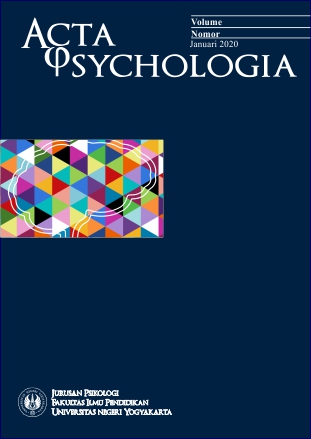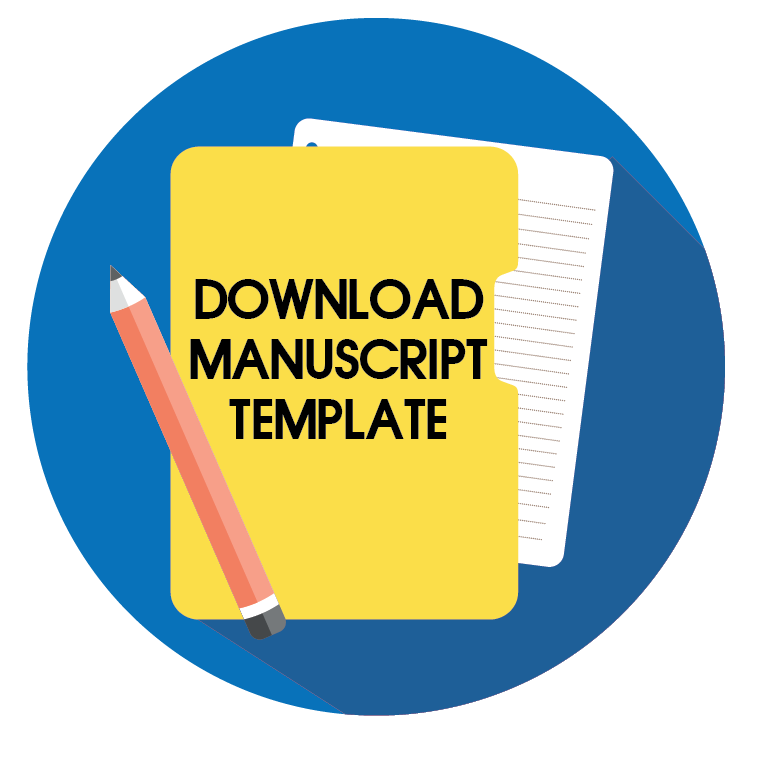Pengaruh regulasi emosi terhadap perilaku emotional eating pada mahasiswa Universitas Negeri Yogyakarta
DOI:
https://doi.org/10.21831/ap.v5i2.72049Keywords:
Regulasi Emosi, Emotional Eating, MahasiswaAbstract
Suasana hati yang tidak baik dapat memicu individu untuk mengonsumsi suatu makanan yang dapat meredam perasaan tidak nyaman. Makanan dianggap menjadi tempat pelarian dari emosi negatif dan hal inilah yang menimbulkan pola perilaku makan tidak sehat yang dikenal dengan istilah emotional eating. Penelitian ini bertujuan untuk mengetahui pengaruh regulasi emosi terhadap perilaku emotional eating pada mahasiswa Universitas Negeri Yogyakarta. Penelitian ini menggunakan metode kuantitatif dengan desain korelasional. Sebanyak 423 mahasiwa aktif Universitas Negeri Yogyakarta bertindak sebagai subjerk dalam penelitian ini. Skala yang digunakan adalah Emotion Regulation Questionnaire berjumlah 11 aitem dan Skala Dutch Eating Behavior Questionnaire berjumlah 16 aitem. Analisis data dalam penelitian ini menggunakan analisis regresi linear sederhana. Hasil penelitian menunjukkan bahwa tidak terdapat pengaruh negatif regulasi emosi terhadap perilaku emotional eating pada mahasiswa Universitas Negeri Yogyakarta.References
Arnett, J. J. (2006). Emerging adulthood: Understanding the new way of coming of age. In J. J. Arnett & J. L. Tanner (Eds.), Emerging adults in America: Coming of age in the 21st century (pp. 3–19). American Psychological Association.
Aryanti, D., Rahman, A., Rahman, A., Tasikmalaya, P. K., & Tasikmalaya, K. (2020). Implementasi penatalaksanaan emotional eating pada kelompok khusus mahasiswa obesitas di Poltekkes Kemenkes Tasikmalaya. Edukasi Masyarakat Sehat Sejahtera (EMaSS): Jurnal Pengabdian kepada Masyarakat, 2(1), 69–75.
Azwar, S. (2017). Penyusunan skala psikologi (2nd ed.). Yogyakarta: Pustaka Pelajar
Braden, A., Musher-Eizenman, D., Watford, T., & Emley, E. (2018). Eating when depressed, anxious, bored, or happy: are emotional eating types associated with unique psychological and physical health correlates?. Appetite, 125, 410-417.
Brytek-Matera, A. (2021). Negative affect and maladaptive eating behavior as a regulation strategy in normal-weight individuals: A narrative review. Sustainability (Switzerland), 13(24) https://doi.org/10.3390/su132413704
Creswell, J. W., & Creswell, J. D. (2018). Research design: Qualitative, and mixed methods approaches. Thousand Oaks, CA: Sage publications.
Darmawanti, I. (2022). Strategi regulasi emosi pada mahasiswa dengan banyak peran. Jurnal Penelitian Psikologi, 9(3), 19–29.
Ekim, A., & Ocakci, A. F. (2021). Emotional eating: Really hungry or just angry?. Journal of Child Health Care, 25(4), 562-572.
E.Taylor, S. (2018). Health psychology 10th edition. In International Encyclopedia of the Social & Behavioral Sciences: Second Edition.
Franco, F. (2018). What is affect or emotion dysregulation?. Psych Central. Retrieved on January 6, 2020, from https://psychcentral. com/blog/what-is-affect-or-emotion- dysregulation.
Gross, J. J., & John, O. P. (2003). Individual differences in two emotion regulation processes: Implications for affect, relationships, and well-being. Journal of Personality and Social Psychology, 85(2), 348–362. 10.1037/0022-3514.85.2.348.
Gross, J. J. (2014). Emotion regulation: Conceptual and empirical foundations. In J. J. Gross (Ed.), Handbook of emotion regulation (2nd ed., pp. 3–20). The Guilford Press.
Gusni, E., Susmiati, S., & Maisa, E. A. (2022). Stres dan emotional eating pada mahasiswa S1 Fakultas Keperawatan. Link,18(2),155–161. https://doi.org/10.31983/link.v18i2.9186
Hayu, Z. A. 2022. Pengaruh stres akademik terhadap emotional eating pada mahasiswa UNY. Skripsi. Fakultas Ilmu Pendidikan dan Psikologi Universitas Negeri Yogyakarta.
Jáuregui-Lobera, I., & Montes-Martínez, M. (2020). Emotional eating and obesity. In Psychosomatic Medicine. IntechOpen.
Kustanti, C. Y., & Gori, M. (2019). Studi kualitatif perilaku emotional eating mahasiswa tingkat IV program studi sarjana keperawatan di Stikes Bethesda Yakkum Yogyakarta tahun 2018. Jurnal Kesehatan, 6(2), 88–98. https://doi.org/10.35913/jk.v6i2.120
Ling, J., & Zahry, N. R. (2021). Relationships among perceived stress, emotional eating, and dietary intake in college students: Eating self-regulation as a mediator. Appetite , 163(7), 105-215.
McLaughlin, A. (2014). Short term effect of bad eating habits. National Eating Disorders Association. https://www.nationaleatingdisorders.org/
Meule, A., Richard, A., Schnepper, R., Reichenberger, J., Georgii, C., Naab, S., Voderholzer, U., & Blechert, J. (2021). Emotion regulation and emotional eating in anorexia nervosa and bulimia nervosa. Eating Disorders, 29(2), 175–191. https://doi.org/10.1080/10640266.2019.1642036
Rachmah, F. Y., & Priyanti, D. (2019). Gambaran emotional eating pada mahasiswa pengguna aplikasi go-food di Jakarta. INQUIRY Jurnal Ilmiah Psikologi, 10(2), 104–118.
Salazar-Fernández, C., Palet, D., Haeger, P. A., & Mella, F. R. (2021). The perceived impact of covid-19 on comfort food consumption over time: The mediational role of emotional distress. Nutrients, 13(6).
Santrock, J. W. (2018). A Topical Approach To Life-Span Development Tenth Edition.
Setiawati, F. A. (2017). Statistika terapan untuk penelitian pendidikan dan sosial. Yogyakarta: Parama Publishing.
Van Strien, T., Frijters, J. E., Bergers, G. P., & Defares, P. B. (1986). The Dutch Eating Behavior Questionnaire (DEBQ) for assessment of restrained, emotional, and external eating behavior. International journal of eating disorders, 5(2), 295-315.
Vandewalle, J., Moens, E., Beyers, W., & Braet, C. (2016). Can we link emotional eating with the emotion regulation skills of adolescents?. Psychology and Health 31(7):1-16. https://doi.org/10.1080/08870446.2016.1149586
Wahidayanti, S. (2020). Regulasi emosi orang tua yang mempunyai anak autis di pusat layanan autis kota Denpasar. Jurnal Psikologi MANDALA, 4(1), 57–70.
Zhang, Y., & Bian, Y. (2020). Emotion regulation questionnaire for cross-gender measurement invariance in Chinese University students. Frontiers in Psychology, 11, 1–8. https://doi.org/10.3389/fpsyg.2020.569438
Downloads
Published
How to Cite
Issue
Section
License
Acta Psychologia allows readers to read, download, copy, distribute, print, search, or link to its articles' full texts and allows readers to use them for any other lawful purpose. The journal allows the author(s) to hold the copyright without restrictions. Finally, the journal allows the author(s) to retain publishing rights without restrictions
- Authors are allowed to archive their submitted article in an open access repository
- Authors are allowed to archive the final published article in an open access repository with an acknowledgment of its initial publication in this journal

This work is licensed under a Creative Commons Attribution-ShareAlike 4.0 Generic License.










